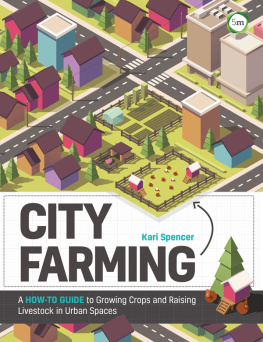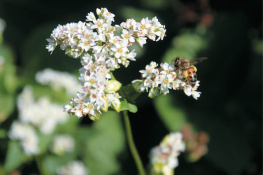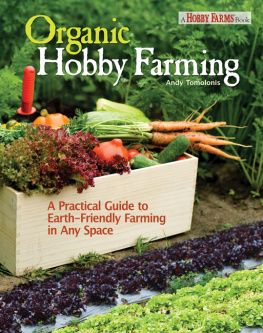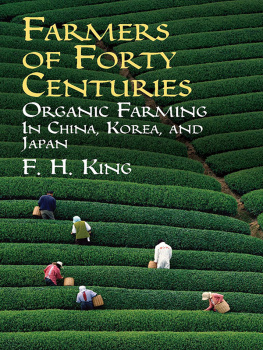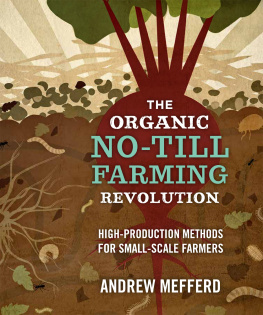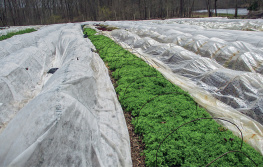Any book requires a lot of work and in this case I received a lot of support and input from Bio-Ag staff workers, consultants, farmers and my family. Everyone who has touched my life in one way or another has contributed to this work. In particular, I would like to thank my wife, Rosemarie, for all the support, patience and editing she has provided to make this book possible. A big thank you, also, to my parents, Floyd and Anita Zimmer, for raising me on a dairy farm and teaching me work ethics and farm life values.
As a college student in the 1960s I learned to observe and question to observe what was happening down on the farm and question agricultural practices. This biological method of farming could not have been put into practical and useable form without the testing and thinking outside the box of many farmers and researchers.
Much has been studied and written on the subject of biological farming; putting it all together in a working model was the challenge. Dr. Harold Willis, author of several great books on alternative agriculture, provided major assistance. Dr. Willis gathered and organized a lot of technical support information found in this book and he provided editing assistance on the practical sections. Thank you Harold, for without your driving force and assistance this book would never have been written.
ABOUT THE AUTHOR
Gary Zimmer was raised on a dairy farm in northeastern Wisconsin. He received training in dairy nutrition, earning a bachelors degree from the University of Wisconsin and a masters degree from the University of Hawaii (1970). After achieving his educational goals, he spent the next five years teaching a farm operation and management course at Winona Area Technical Institute, Winona, Minnesota. In addition to nutrition, he was required to teach courses in crops, soils and farm finance. His approach to teaching included outside speakers, on-farm projects, field trips and much study. He has always asked questions and looked at many ways of farming with an open mind. This led him to discover The Albrecht Papers, Brookside consulting training, work as a private consultant in southeastern Minnesota, and ultimately to promote a better understanding and appreciation of biological farming.
For the last 25 years, Gary Zimmer has been evaluating farming practices which has presented him with many interesting observations and methods for successful biological farming. In the fall of 1979, Gary and his family moved to Spring Green, Wisconsin, where, in the early 1980s, he and three partners started Midwestern Bio-Ag. With their main emphasis on education, Midwestern Bio-Ag currently works with more than 3,500 farms and has 75 trained consultants. Besides being president of Midwestern Bio-Ag, for the last five years, Gary has also managed the Bio-Ag Learning Center, a livestock and crop demonstration farm where he tests products and methods for successful biological farming. Otter Creek Organic Farm is also operated and co-owned with his son Nicholas. The 240-acre farm is certified organic and grows edible beans, corn and forages. On the 100 acres of creek bottom pasture, rotational grazing is done either with dairy heifers or beef cattle. The first major test project on this farm was to see how rapidly low-fertility, run-down soils could be fixed with organic methods. Soil tests and a follow-up story are included in this manual.
Gary continues to be an educator at heart and is a much sought-after speaker. He conducts presentations from coast to coast for diverse groups of people, including farmers, farm financial groups, private farm consultants, environmental groups and other agribusinesses.
ABOUT THIS BOOK
This is a training manual for farmers and Bio-Ag consultants. If we are to change agriculture to a more sustainable biological system, we need to work together. If this book helps you become a better farmer or consultant, it has served its purpose.
Midwestern Bio-Ags emphasis is on information, education and ideas for crop and livestock farmers. We make our living by providing high quality programs backed up by tested and proven products. These programs have their foundation in the rules of biological farming.
First published in 1983, this book began as a training guide for Bio-Ag consultants. It has been added to and revised many times. In 1993 it was put into a ring binder and made available to our farmers with the belief that if farmers know and understand the whys and hows of biological farming, they can be more successful.
We have no secrets. We work with nature, feeding soil life, balancing soil minerals and tilling soils with a purpose. This is a practical how-to guide to give you ideas and suggestions for making farming more fun and profitable. Biological farming is a type of farming another way with beliefs, observations and rules to be followed. I will not try to convince you of the benefits of biological farming, but rather give reasons and explain how biological farming works. Im sure there are other ways to farm biologically using other materials and methods, but the concept is the same.
No question about it, you can get high yields with lots of commercial fertilizers and synthetic chemicals for weed, insect and disease control. There are, however, some concerns and problems. Is this food production system safe and sustainable? At best we hope we are not creating more problems in the future. But we do have a lot of people to feed, and we do need to keep production up. Biological farming does not mean less production. It does mean working toward elimination of limiting factors to production. Once the soils chemical (nutrients), physical and biological properties are in balance, you can expect optimum production, even in bad years.
We dont credit any one thing for making biological farming successful. Maybe its the calcium source, maybe its the change in how we till the soil, or the green manure crops we grow. Maybe its the balanced, higher quality fertilizer. Maybe its all of the above. Biological farmers manage the whole system and are not looking for miracles. They evaluate soils, crops and farming practices, and put together a whole-farm management system. Thats what this training manual is designed to do to give ideas and guidelines to follow for successful biological farming.


